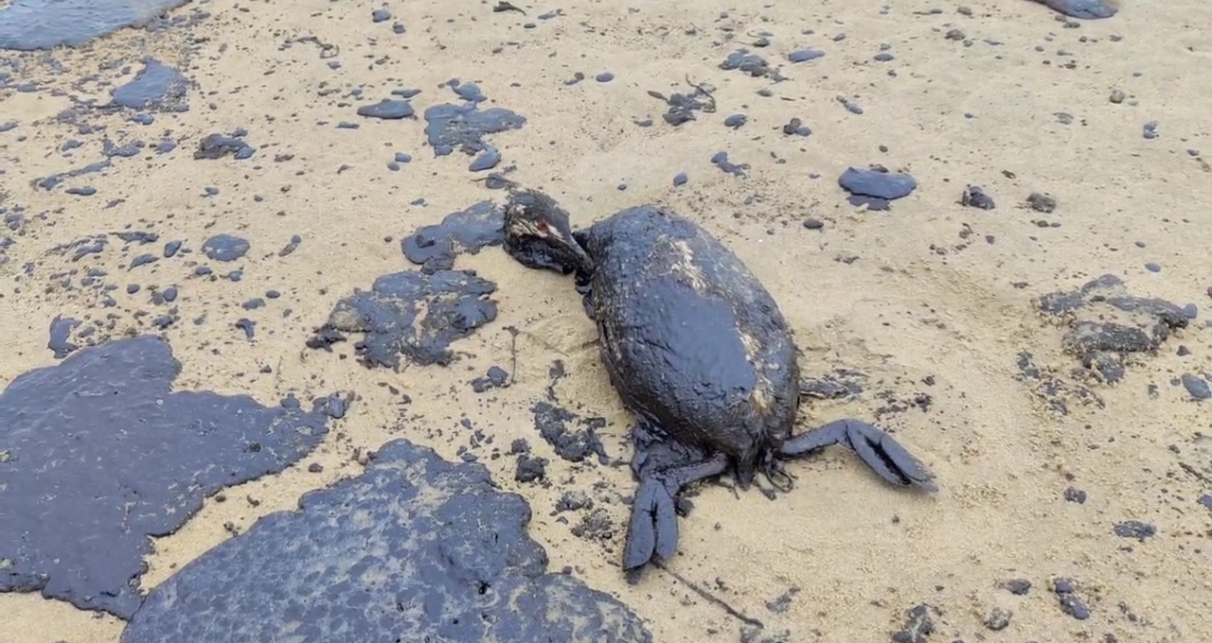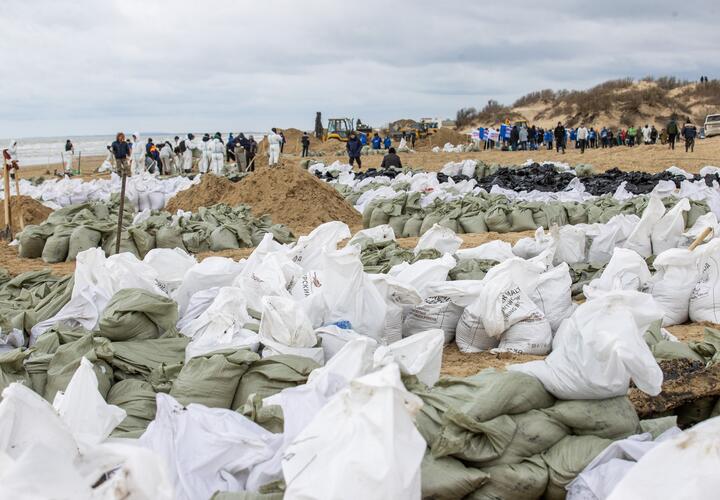Fears Grow Over Long-Term Impact of Black Sea Tanker Disaster

Massive oil spill cleanup underway in Krasnodar region.
SUKHUM / AQW’A — Efforts to clean the shores of the Krasnodar Region continue after two Russian oil tankers, the Volgoneft-212 and Volgoneft-239, sank in the Kerch Strait on 15 December. The vessels were carrying a combined total of approximately 9,000 tonnes of fuel oil. Russia's Ministry of Emergency Situations (EMERCOM) reported on the morning of 20 December that 3,303 tonnes of contaminated sand and soil had been collected.
The ministry previously stated that 19.6 kilometres of coastline had been cleaned, although the total affected area spans 49 kilometres. Despite progress, local residents and volunteers have noted recurring challenges, such as oil residue washing ashore in previously cleared areas. Volunteers have also raised concerns over insufficient equipment, which has delayed the removal of contaminated waste bags, allowing oil to seep back into the sand.
Efforts involve over 6,000 personnel and more than 250 units of equipment, with participation from federal, regional, and municipal emergency services, as well as Cossacks and volunteers. Booms are being deployed in the Black Sea to contain the oil spread. Rescue teams have saved 176 birds, but at least two dead dolphins have been discovered. Greenpeace has warned that this spill could rank among the Black Sea’s worst ecological disasters.
The spill’s reach in the sea has extended to 55 kilometres, affecting the vicinity of the Taman port, according to Sergey Stanichny, head of the remote research department at the Marine Hydrophysical Institute of the Russian Academy of Sciences. He confirmed that the leak originated from the Volgoneft-212, which was carrying approximately 4,000 tonnes of fuel oil, the same quantity reported on the other tanker.

+ Black Sea Faces Environmental Crisis as Two Russian Tankers Sink
+ 49km of Black Sea Coast Affected by Worsening Oil Spill

While Rospotrebnadzor, Russia’s consumer rights watchdog, has stated that air pollution near the beaches of Temryuk District is within legal limits, residents have complained of a strong odour of oil, eye irritation, nausea, and breathing difficulties. Emergency workers and volunteers are operating in protective masks.
Environmental groups and experts warn of long-term consequences. Boris Kokotov, president of the National Association of Environmentalists, stated that with rising temperatures, oil sediment on the seabed could resurface, posing serious health risks to summer tourists. Prolonged exposure may cause allergic reactions, skin irritations, gastrointestinal issues, and other ailments.
The incident has amplified fears over the environmental impact, with Greenpeace describing it as potentially one of the largest ecological disasters in the region’s history. The organisation previously cautioned that a spill of this magnitude would have devastating consequences for the fragile Black Sea ecosystem.